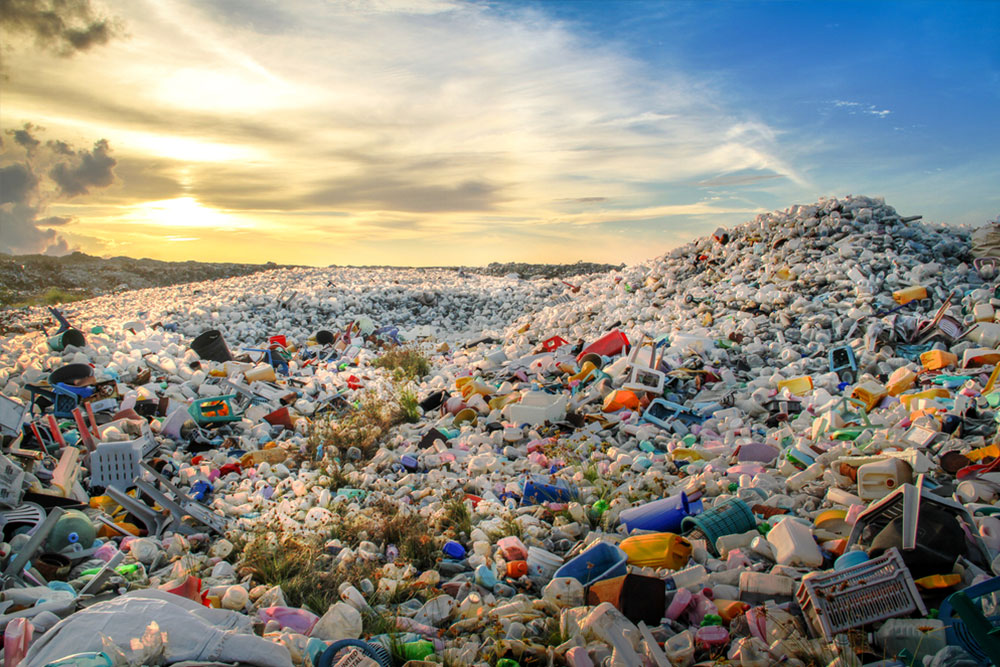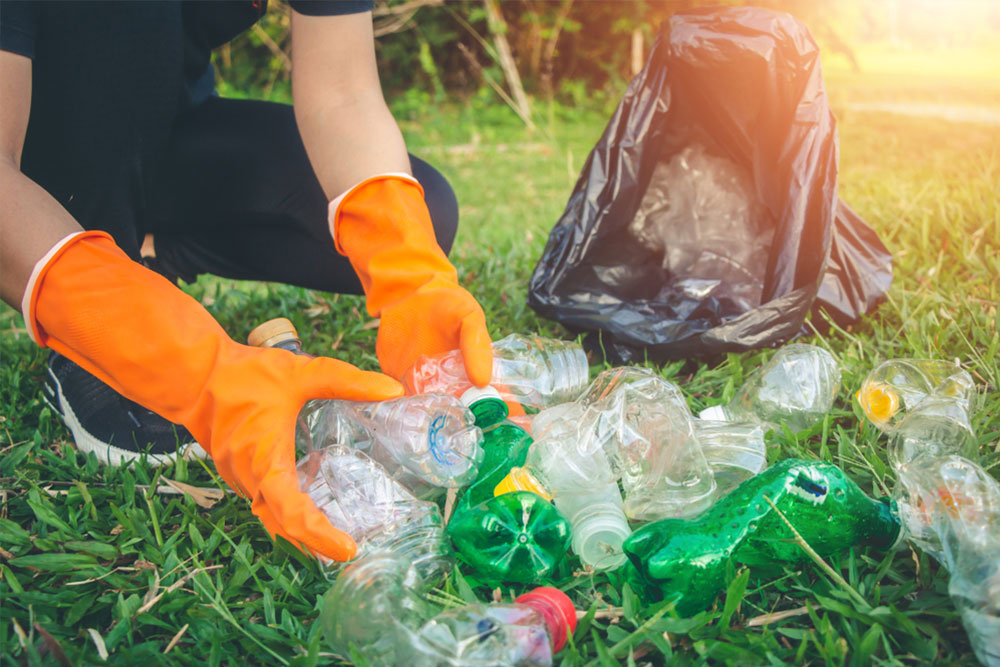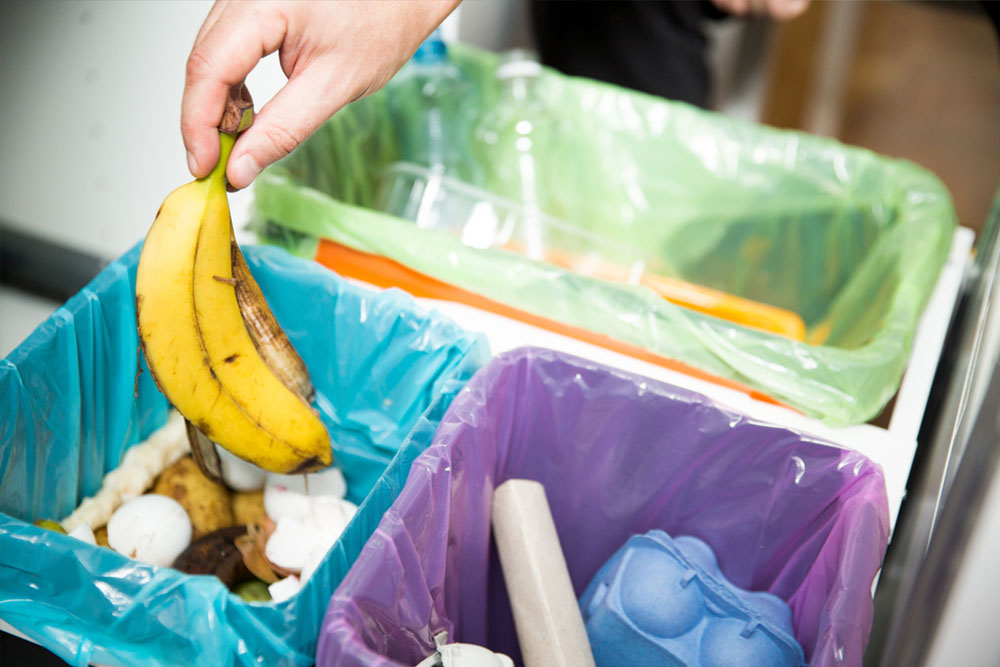Where there are humans, there is waste. This simple statement is attested by the fact that all our activities of production and consumption generate large quantities of waste. As our population grows and activities increase, the amount of waste we generate also increases. This is the reason why the world is besieged with the growing pressure to manage waste properly. Waste management, which refers to activities and actions that handle waste materials, includes collection, transportation, processing, and disposal of waste.
The United Nations believes that waste can be both a resource and an environmental problem. If waste management isn’t done sustainably—meaning important strategies like waste prevention, recovery, recycling and reuse, aren’t implemented properly—then the burden on landfills and natural resources increases. Similarly, if waste isn’t treated properly, it can cause sanitation and health issues by contaminating the soil, water, and air with pollutants, and cripple ecosystems beyond repair. The aim of sustainable waste management is therefore to make use of the resources we often throw away as or in waste, and reduce the risk of adverse environmental effects at the same time.

Countries across the world, and especially the 196 nations that signed the Paris Agreement on climate change in 2015, are committed to reduce human waste and sustainably manage the same. However, the COVID-19 pandemic has led to the emergence of a huge waste management crisis of global proportions. Here’s all you need to know about it.
The pandemic pandemonium around waste
In 2020, people across the world witnessed unprecedented changes in all aspects of life. A study published in the journal Environment, Development and Sustainability, titled Impact of COVID-19 pandemic on waste management, explains that despite widespread reports of reduced air pollution, noise pollution, and improved biodiversity, there was a profound shift in how the world perceives and manages waste during a crisis period. The fact that the amounts of medical, hazardous wastes generated by hospitals and healthcare facilities have increased due to the exponential rise in COVID-19 cases across the world, is undisputed. As the number of cases exploded, open incineration and mismanagement of medical wastes also led to secondary transmission of the virus, especially in developing countries with insufficient waste management systems.

An Indian study published in Clinical Epidemiology and Global Health in 2021, titled Updates on Biomedical Waste Management During COVID-19, suggests that due to limited resources and a flawed biomedical waste management system, India is facing severe repercussions during the pandemic. The study states that with 198 approved common biomedical waste disposal facilities (and 28 under construction), our nation has to cope with a national daily waste generation of around 850 tonnes per day! Around five million sanitation workers in the country are simultaneously handling biomedical and municipal wastes. But because they have a lack of awareness, and are unable to access necessary personal protective equipment or use them and safety guidelines properly—no thanks to the immense scale of waste they have to handle—these workers are at a high risk of transmission too.
Clearly, better awareness programmes and creating a biomedical waste management system better equipped at handling a crisis of this scale are urgently needed. The government of India, along with agencies like the All India Institute of Medical Sciences (AIIMS) and healthcare facilities, are taking steps to cope with the crisis, but sustainable waste management systems usually take time to develop and execute.

Your role in sustainable waste management during the pandemic
Now, the question you may ask is, ‘How do I, as an individual, act to solve this crisis?’. The answer is simple, and lies in the second shift in sustainable waste management observed over 2020 and 2021. With lockdowns, work from home and quarantine guidelines, the Indian household has become another centre of increased human waste. In its 2020 report titled Waste Management during the COVID-19 Pandemic, the United Nations Environment Programme points out the following ways in which household waste is contributing to the sustainable waste management crisis:
• Increased amount of plastic waste
• Suspension of recycling activities
• Increase of mixed waste due to lack of segregation at the source
• Lack of awareness regarding waste management

So, while you may not be equipped to handle biomedical wastes generated at hospitals, you can do your bit while staying at home by just paying a little more attention to what you waste and how you dispose of the waste. The following tips may come in handy:
• Reduce your waste: Think before you buy a product and consider the waste home deliveries will generate. If something can be reused, recycled or upcycled—from plastic wraps and bottles to cardboard boxes and home-delivered food containers—use your imagination or DIY techniques easily available online to minimise the waste you generate.
• Separate your waste: Apart from separating “wet” and “dry” waste, or recyclable, biodegradable, and non-recyclable waste, ensure that all masks, gloves, PPEs and other medical wastes generated at home are also stored and disposed of separately. This step is of vital importance for those who have mild to moderate COVID-19 disease, and are getting treatment at home.
• Donate and recycle: Even during the peak of the pandemic, there are NGOs, charities and volunteers initiating donation and recycling drives. Instead of throwing old clothes, books and household goods in the dustbin, reach out to such drives to donate or dispose of your waste properly. Your waste could easily be someone else’s resource.
• Spread the word: Sustainable waste management is an urgent need, highlighted more than ever before by this pandemic. Read up more on how you can contribute at the individual and community levels and share this information with anybody you can reach, even if it’s through social media alone.
Can you think of any other ways to help resolve the sustainable waste management crisis we currently face? Let us know in the comments below.